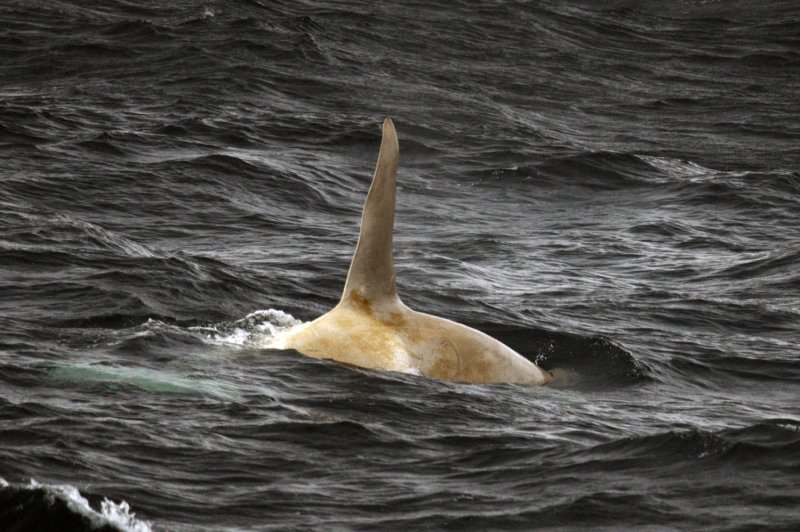VANCOUVER, British Columbia, May 15 (UPI) -- Granny is back, and she's rolling deep -- 25 whales deep. "Granny" is what scientists call the matriarch of a pack of killer whales known as the "J-Pod," or the "Southern Resident Killer Whales." And Granny is estimated to be 103 years old.
Thought to be born roughly a year before the Titanic sank, Granny was recently spotted cruising the cold northern Pacific waters off the coast of British Columbia. The majority of killer whales don't make it past 70 years old.















